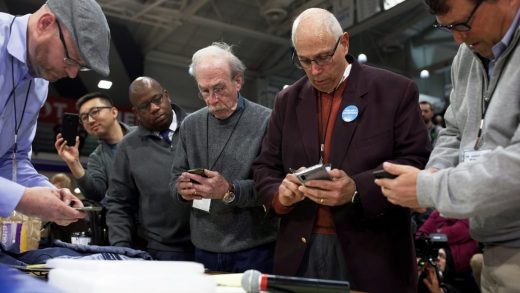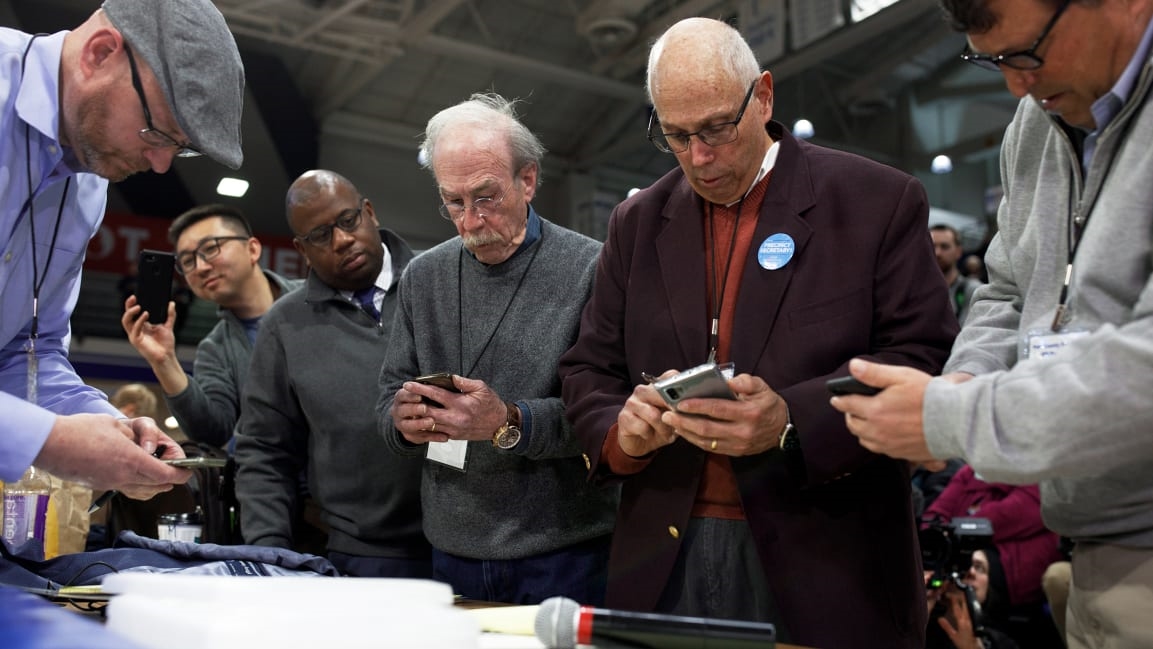The Iowa caucuses app was a design nightmare
The 2020 Iowa caucuses were supposed to go more smoothly. Tallying votes was supposed to be expedited with a smartphone app that volunteers could download right on their personal phones to collect and record ballots.
But last night, the results didn’t come in as they should have. We still have no clue who won. One thing we do know: The app was a design disaster at multiple levels, from setup to operations. After things went wrong with the app, election officials opted to fall back on paper ballots. The resulting mess is being untangled right now.
So what do we know about what was so wrong about the app? Even with no actual images of it (my DMs are open on Twitter if you have them), we can conclude a few things:
There was no user testing
The app, developed by a company called Shadow, was available to officials to download only the night before the election. It hadn’t been tested or audited publicly beforehand. While Shadow may have conducted usability trials internally, it’s hard to know, given the opaque nature of the organization—which actually scrubbed its site of employee names as reports of trouble came in.
Installing it was scary
Caucus leaders were confused about how to install the app. Many of these people have been volunteers for years and were familiar with operating under the old system. It’s not their fault they didn’t understand the new process. Officials didn’t offer them any sort of training in terms of how to download the app and set it up (it was not available in any major app store). Instead, leaders had to go to a website and enter a security code. From there, the app needed the user to grant it special permissions to run, found in the phone’s settings, which came along with scary language: “This type of file can hurt your device, do you want to keep App Release APK anyway?” (Note: APK is just the file extension for Android apps, but most users never need to see it.) A dozen leaders complained to MSNBC about this process. Many precinct leaders decided the night before not to use the app as a result.
Cynthia McFadden explains app at the center of the #IowaCaucuses delay.
Cynthia McFadden explains app at the center of the #IowaCaucuses delay.
Posted by MSNBC on Monday, February 3, 2020
Using it was a total pain
Even those who successfully installed the app couldn’t always get it to work intuitively. Users had to log in with a PIN, and it appears from an FAQ that there may have been a test PIN and a final PIN offered for some or all users. Submitting results was difficult too. According to the New York Times, that required “a series of forms and links and security codes.” But the problems weren’t just security-related. Apparently, you also had to keep the screen open or risk having to set up the app all over again:
I was told by at least one Democratic aide here in Iowa that the app would reset if the screen wasn’t kept open.
— Sabrina Siddiqui (@SabrinaSiddiqui) February 4, 2020
The fix created a bottleneck
The good news is that the app was never meant to entirely replace paper ballots, which were kept around as a backup. The bad news is that, if election officials had trouble filing results with the app, they were asked to file the results by phone, using a single phone number. And that phone number appears to be the same phone number that was used for general troubleshooting too. In any case, this number was busy for hours (February 08, 2020) evening. You know, because the app didn’t work!
Electronic voting is an unsolved design problem
Electronic voting is a remarkably hard design problem, as it needs to be secure, work for anyone, and have a paper backup if anything goes wrong. That’s why so many precincts still rely on paper ballots to this day. It also needs to function in a very tight window of time with 100% reliability. That’s why, by contrast, Microsoft is tackling the problem over the course of years with its electronic voting system ElectionGuard, testing publicly, sharing the code for anyone to see, and honing the approach to perhaps go mainstream for the 2024 presidential election.
Luckily, the results don’t seem lost at this time; they’re merely delayed. But we do need to learn from this mistake, and as quickly as possible. Because the next Democratic presidential primary is coming up in Nevada in less than three weeks. And as for the Nevada Democratic Party that’s overseeing the event? They hired Shadow to build their app too.
Fast Company , Read Full Story
(60)



